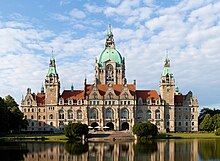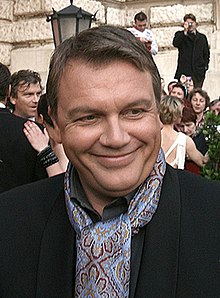The British royal family comprises King Charles III and his close relations. There is no strict legal or formal definition of who is or is not a member, although the Royal Household has issued different lists outlining who is a part of the royal family. Members often support the monarch in undertaking public engagements, and pursue charitable work and interests. Members of the royal family are regarded as British and world cultural icons.

The House of Windsor is a British royal house, and currently the reigning house of the United Kingdom and the other Commonwealth realms. The royal house's name was inspired by the historic Windsor Castle estate. Since it was founded on 17 July 1917, there have been five British monarchs of the House of Windsor: George V, Edward VIII, George VI, Elizabeth II, and Charles III. The children and male-line descendants of Queen Elizabeth II and Prince Philip also genealogically belong to the House of Oldenburg since Philip was by birth a member of the Glücksburg branch of that house.

The House of Hanover is a European royal house with roots tracing back to the 17th century. Its members, known as Hanoverians, ruled Hanover, Great Britain, Ireland, and the British Empire at various times during the 17th to 20th centuries. Originating as a cadet branch of the House of Welf in 1635, also known then as the House of Brunswick-Lüneburg, the Hanoverians ascended to prominence with Hanover's elevation to an Electorate in 1692. In 1714 George I, prince-elector of Hanover and a descendant of King James VI and I, assumed the throne of Great Britain and Ireland, marking the beginning of Hanoverian rule over the British Empire. At the end of his line, Queen Victoria's death in 1901, the throne of the United Kingdom passed to her eldest son Edward VII, a member of the House of Saxe-Coburg and Gotha, through his father Albert, Prince Consort. The last reigning members of the House of Hanover lost the Duchy of Brunswick in 1918 when Germany became a republic and abolished royalty and nobility.

The Royal Marriages Act 1772 was an Act of the Parliament of Great Britain which prescribed the conditions under which members of the British royal family could contract a valid marriage, in order to guard against marriages that could diminish the status of the royal house. The right of veto vested in the sovereign by this Act provoked severe adverse criticism at the time of its passage.
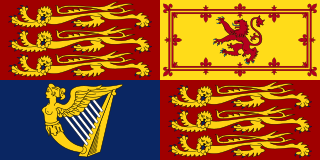
The royal standard of the United Kingdom is the banner of arms of the monarch of the United Kingdom, currently Charles III. It consists of the monarch's coat of arms in flag form, and is made up of four quarters containing the arms of the former kingdoms of England, Ireland, and Scotland. There are two versions of the banner, one used in Scotland in which the Scottish quarters take precedence, and one used elsewhere in which the English quarters take precedence.
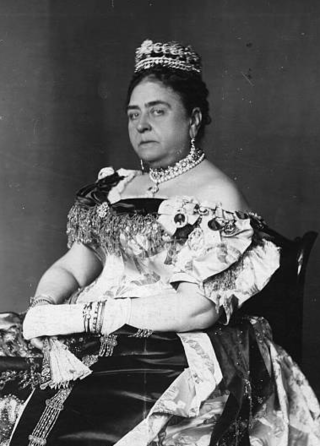
Princess Mary Adelaide of Cambridge, later known as the Duchess of Teck, was a member of the British royal family. She was one of the first royals to patronise a wide range of charities and was a first cousin of Queen Victoria.
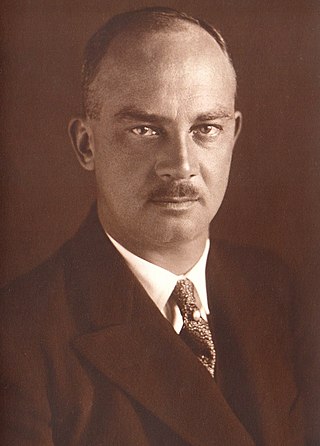
Ernest Augustus ; 17 November 1887 – 30 January 1953) was Duke of Brunswick from 2 November 1913 to 8 November 1918. He was a grandson of George V of Hanover, thus a Prince of Hanover and a Prince of the United Kingdom. He was also a maternal grandson of Christian IX of Denmark and the son-in-law of German Emperor Wilhelm II. The Prussians had deposed King George from the Hanoverian throne in 1866, but his marriage ended the decades-long feud between the Prussians and the Hanoverians.

Kensington Palace is a royal residence set in Kensington Gardens, in the Royal Borough of Kensington and Chelsea in London, England. It has been a residence of the British royal family since the 17th century, and is currently the official London residence of the Prince and Princess of Wales, the Duke and Duchess of Gloucester, the Duke and Duchess of Kent, Prince and Princess Michael of Kent and Princess Eugenie and her husband Jack Brooksbank and their two sons. Kensington Palace is sometimes used as a metonym for the offices of royals who officially reside there.

Edward John Spencer, 8th Earl Spencer,, styled Viscount Althorp until June 1975, was a British nobleman, military officer, and courtier. He was the father of Diana, Princess of Wales, and the maternal grandfather of William, Prince of Wales, and Prince Harry, Duke of Sussex.

Prince of the United Kingdom of Great Britain and Northern Ireland is a royal title normally granted to sons and grandsons of reigning and past British monarchs, plus consorts of female monarchs. The title is granted by the reigning monarch, who is the fount of all honours, through the issuing of letters patent as an expression of the royal will.

The use of the title of Princess of the United Kingdom of Great Britain and Northern Ireland is entirely at the will of the sovereign, and is now expressed in letters patent. Individuals holding the title of princess will usually also be granted the style of Her Royal Highness (HRH). The current letters patent were issued in 1917 during World War I, with one extension in 2012.

Succession to the British throne is determined by descent, sex, legitimacy, and religion. Under common law, the Crown is inherited by a sovereign's children or by a childless sovereign's nearest collateral line. The Bill of Rights 1689 and the Act of Settlement 1701 restrict succession to the throne to the legitimate Protestant descendants of Sophia of Hanover who are in "communion with the Church of England". Spouses of Catholics were disqualified from 1689 until the law was amended in 2015. Protestant descendants of those excluded for being Roman Catholics are eligible.
A Royal Fellow of the Royal Society is a member of the British royal family who has been elected a Fellow of the Royal Society. The council of the Royal Society recommends members of the Royal Family to be elected and then the existing Fellows vote by a secret ballot whether to accept them. The ballots have only a single box to tick supporting the measure; those opposing have to write "no" or otherwise mark or spoil the paper. As of 2022 the Patron was Queen Elizabeth II, and Royal Fellows were:

The Queen is a 2006 historical drama film directed by Stephen Frears and written by Peter Morgan. The film depicts the death of Diana, Princess of Wales in 1997. The royal family regards Diana's death as a private affair and thus not to be treated as an official royal death, in contrast with the views of Prime Minister Tony Blair and Diana's ex-husband, Prince Charles, who favour the general public's desire for an official expression of grief. Matters are further complicated by the media, royal protocol regarding Diana's official status, and wider issues about republicanism.

The Queen and I is a 1992 novel and play written by Sue Townsend, a fictional best-selling political satire revolving round the topic of republicanism in the United Kingdom.
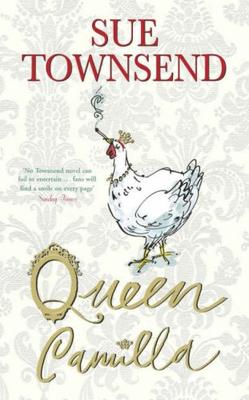
Queen Camilla is a satirical novel by the British author Sue Townsend.

The fourth season of The Crown, which follows the life and reign of Queen Elizabeth II, was released by Netflix on 15 November 2020. The season was promoted with the tagline "Change Will Challenge Tradition".

The fifth season of The Crown, which follows the life and reign of Queen Elizabeth II, was released by Netflix on 9 November 2022. It was the first season of the series to be released following both the death of Prince Philip, Duke of Edinburgh on 9 April 2021 and the death of Queen Elizabeth II on 8 September 2022; filming took place between the former and the latter's death. The season was promoted with the tagline "A House Divided".

Charles and Diana: Unhappily Ever After is a dramatic television movie of 1992 telling the real-life story of the failed marriage of Charles, Prince of Wales, and his first wife, Diana, Princess of Wales.
Charles III, King of the United Kingdom and other Commonwealth realms, has been depicted in art and popular culture.

